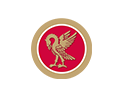Why Study English Literature?
English is recognised as an excellent preparation for many university courses, and the skills of analysis, planning and articulate communication that A-level literature study develops, are important in all academic fields. English complements any subject, including sciences, at A-level. A number of King’s pupils go on to English-related courses at top universities, where qualifications support entry into professions including the media, law, marketing, the civil service, industry and information management.
Two members of staff teach each set, delivering the different components of the two-year course, so pupils benefit from a variety of input and styles. For those who have enjoyed the subject at GCSE, one attraction should be obvious: it’s fun. We offer the intellectual excitement and satisfaction generated from sustained critical reading of texts, together with the discovery of the wide range of humanity contained within.
Most important for success is an enthusiasm for reading, and considering in detail the literature and language we encounter.
From specialist teaching to those pupils who speak English as an Additional Language, through to our well stocked library and our Pelican Society, the English department at King's also hold a number of events and competitions to stretch the imagination and the skills of students beyond the classroom.
What Will You Study?
Lessons often take a seminar format, with discussion of the text being studied; it may be read in advance, discussed in class, or performed if a drama text. There is usually at least one piece of written work, research notes or an essay, each week.
We also organise trips to relevant locations, and where possible, theatre performances: in recent seasons to London, Bath, Plymouth, Cheltenham, Oxford, Stratford, Exeter, or for Lower Sixth to Hardy’s birthplace and Max Gate, and Stourhead House as part of Upper Sixth study. The English Society, with meetings every half term, has been addressed by staff, Sixth Formers, and external speakers, and pupils can take a lead in presenting, or helping organise the programme of events.
Components include:
- Drama and Poetry pre-1900
- Comparative and Contextual study
- Literature Post-1900 (20%)

